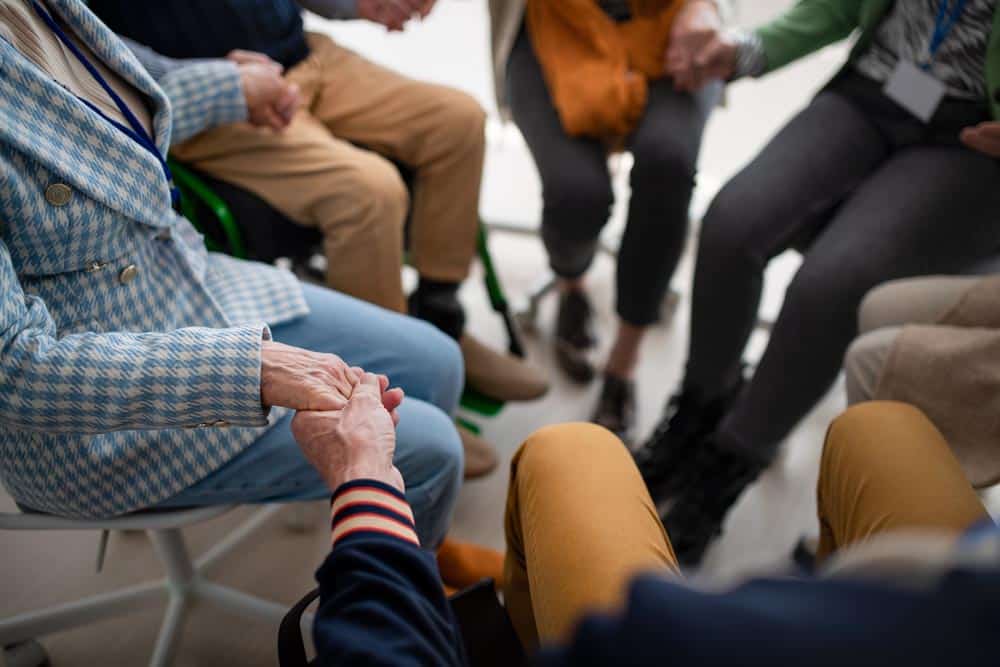For those on the outside looking in, addiction can seem like a series of poor decisions. It’s easy to ask: “Why don’t they just stop?” But addiction is far more complex than a matter of willpower. The truth is, addiction is not a choice, it’s a chronic condition shaped by biology, trauma, environment, and spiritual brokenness. Recognizing this is not about excusing behavior. It’s about understanding the deeper battle people face so we can respond with compassion and wisdom.
At Good Landing Recovery, we believe that real healing starts with truth, both spiritual and scientific. When you understand the roots of addiction, you can extend grace without enabling and offer help that actually leads to freedom.

The Misconception: “They Chose This Life”
It’s a common belief that addiction stems from irresponsibility or moral failure. While it’s true that initial substance use may involve a decision, addiction itself often develops without the person realizing they’ve crossed a line.
What begins as a coping mechanism or escape can evolve into physical dependence and deep psychological entanglement. No one chooses trauma. No one chooses a brain that craves relief. And no one chooses to lose their family, health, or identity. Addiction pulls people into darkness—and many don’t even realize they’re drowning until it feels too late.
What Science Says About Addiction
The National Institute on Drug Abuse defines addiction as a “chronic, relapsing disorder characterized by compulsive drug seeking, continued use despite harmful consequences, and long-lasting changes in the brain.”
Let’s unpack what that means:
- Chronic: Like diabetes or asthma, addiction is ongoing and needs long-term care.
- Relapsing: Recovery often involves setbacks. This doesn’t mean failure, it means the condition is difficult to manage alone.
- Brain Changes: Substances can hijack the brain’s reward system, especially areas related to decision-making, impulse control, and emotional regulation.
Repeated drug or alcohol use alters the brain’s wiring, making it harder to experience pleasure naturally and easier to become consumed by cravings. Over time, substances become a perceived need, not just a want.
The Role of Trauma and Mental Health
Many individuals struggling with addiction carry deep wounds from their past. Trauma—especially in childhood—can reshape the brain and nervous system. Without healing, these emotional injuries can lead to depression, anxiety, or PTSD. Substances often feel like the only way to numb the pain.
At Good Landing Recovery, we often see clients who turned to drugs or alcohol not out of rebellion, but out of desperation. Addiction wasn’t their plan—it was their painkiller.
Here’s how trauma contributes to addiction:
- Hyperactive stress response (fight-or-flight mode)
- Dissociation and emotional detachment
- Difficulty forming healthy relationships
- Impaired ability to self-soothe
Without healthy tools, people rely on substances to feel okay. That’s not a moral failure—it’s a survival instinct gone wrong.
Spiritual Blindness and Bondage
Addiction is more than a physical or emotional issue. It’s also deeply spiritual. Scripture shows us that sin distorts, isolates, and enslaves. And addiction is a form of bondage that impacts a person’s ability to connect with God, others, and their own sense of worth.
Romans 7:15 captures the inner struggle perfectly:
“I do not understand what I do. For what I want to do I do not do, but what I hate I do.”
This isn’t about excuses. It’s about recognizing that addiction often traps individuals in patterns they deeply want to escape. That’s why lasting freedom requires more than behavior change—it requires spiritual transformation.

How Addiction Hijacks the Brain
Drugs and alcohol flood the brain with dopamine, a chemical associated with pleasure and reward. Over time, the brain reduces its own dopamine production, causing a person to feel depressed or empty without substances.
As addiction develops, several brain regions are affected:
- Prefrontal Cortex: Impaired decision-making and judgment
- Amygdala: Heightened emotional reactivity and anxiety
- Hippocampus: Distorted memories and associations with pleasure
- Basal Ganglia: Reinforcement of habits and routines
This is why many individuals continue using even when they want to stop. The brain has been rewired—and reversing that process takes time, treatment, and support.
Why Choice Still Plays a Role
Acknowledging that addiction is not a choice doesn’t mean choice is irrelevant. People still have responsibility—but they also need resources. Choice matters in seeking help, setting boundaries, and staying in recovery. But without the right support, those choices are incredibly hard to make.
At Good Landing Recovery, we create an environment where healthy choices become possible again, through counseling, community, and Christ-centered renewal.
How to Respond With Compassion
Understanding that addiction is not a choice shifts how we show up for others. Here are a few ways to offer support rooted in grace and truth:
- Avoid Judgment: Replace blame with curiosity. Ask what pain the addiction might be covering up.
- SeSetting Boundaries: Protecting Your Recovery Journeyt Healthy Boundaries: Compassion doesn’t mean enabling. Support their healing, not their habit.
- Be Consistent: Show love even when recovery is messy. Healing takes time.
- Pray Boldly: Intercede for breakthrough, peace, and wisdom.
- Offer Tangible Help: Encourage treatment, accompany them to appointments, or simply listen without trying to fix everything.
What Good Landing Recovery Offers
We’ve walked alongside hundreds of individuals who believed they were too far gone. But we’ve seen God break chains and rewrite stories. Our Christ-centered approach blends professional treatment with spiritual guidance because we know healing happens when all parts of a person—mind, body, and soul—are cared for.
Here’s what clients find at Good Landing:
- Compassionate and clinically trained staff
- Personalized treatment plans
- Faith-based counseling and worship
- Peer support and mentorship
- A culture of grace and accountability
We meet people where they are—and walk with them toward where God is calling them to go.

The Real Invitation
If someone you love is struggling with addiction, remember this: they are not their addiction. They are a soul made in God’s image, worthy of love and capable of change.
Speak life. Stand firm in truth. Stay hopeful.
And if you’re the one fighting to break free, know this, there is grace for you. You are not broken beyond repair. There is a path forward. It starts with asking for help and believing that your story isn’t over.
Freedom Is Found in Christ
Addiction may not be a choice, but healing is. It’s the daily decision to show up, surrender, and walk a new path—guided not by shame, but by grace. At Good Landing Recovery, we believe Jesus is not just part of the solution—He is the solution.
Healing is possible. Hope is real. And no one is too far gone.

